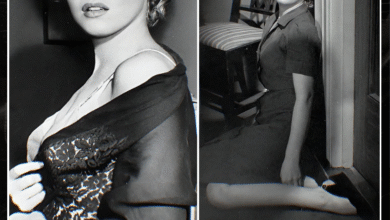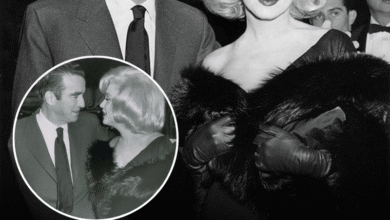Why Stallone Turned Down $300,000: The Risky Decision That Made ‘Rocky’ a Global Phenomenon!
OPINION: This article may contain commentary which reflects the author's opinion.
In the mid-1970s, a young Sylvester Stallone faced a defining moment in his career—a moment that would not only shape his future but would also change the course of Hollywood history. With just $106 to his name and a dream of making it big, Stallone had written a script for a film about an underdog boxer, Rocky, a character who would later become an iconic symbol of perseverance and determination. But when major studios showed interest, they made one critical demand: Stallone could not star in the lead role.
Despite financial hardship, Stallone refused to accept offers that would have paid him up to $300,000—an amount equivalent to $1 million today—if he was excluded from playing the role of Rocky Balboa. This bold decision, grounded in his belief that he was the only person who could bring his character to life, ultimately launched Stallone’s career and cemented his place in cinematic history.
The $300,000 Gamble
Stallone was in dire financial straits at the time. At 30 years old, he had just $106 in his bank account. Yet, despite the significant offer on the table, Stallone stood firm in his vision for the film. The studios were eager to produce Rocky but insisted on casting a well-known actor such as Burt Reynolds, James Caan, or Ryan O’Neal in the lead role, believing that a big-name star would bring the necessary commercial appeal.
In a 2014 Business Insider article, Stallone recalled his experience pitching the film to big-name directors, who “scattered, ran for the hills” when they learned that Stallone insisted on playing Rocky himself. For many, the decision seemed illogical—turning down a $300,000 offer in favor of a role he had written for himself seemed like an impossible gamble, especially given his financial struggles.
But Stallone believed deeply in the character he had created and was determined to embody Rocky, rather than watch another actor play him. This unwavering commitment to his vision would define not only the film but Stallone’s entire career.
From Risk to Reward: The Success of Rocky
Stallone’s gamble ultimately paid off. The producers, recognizing the strength of his conviction and the passion behind his vision, agreed to let him star in the film. Rocky, released in 1976, was produced on a modest budget of $1.075 million. What followed was nothing short of extraordinary. The film grossed over $117 million at the U.S. box office, an additional $107 million overseas, bringing the total worldwide gross to $225 million. Adjusted for inflation, Rocky earned more than $500 million in North America alone by 2018.
The film’s success wasn’t just financial—it was also critical. Rocky won three Academy Awards, including Best Picture, Best Director for John G. Avildsen, and Best Film Editing. This recognition, combined with its massive box-office earnings, transformed Stallone from an unknown actor to a household name.
The Long-Term Impact on Stallone’s Career
The success of Rocky had far-reaching effects on Stallone’s career. Not only did it establish him as a major Hollywood star, but it also launched a franchise that would become one of the most successful in film history. The Rocky franchise went on to include six sequels, as well as the Creed spinoff films, which continue to generate critical and commercial success.
As of 2025, the Rocky franchise has grossed more than $1 billion worldwide. Stallone’s portrayal of Rocky Balboa has become iconic, influencing modern popular culture and solidifying his status as a box office draw. His perseverance and refusal to compromise on his vision became a cornerstone of his career, with his name synonymous with the underdog spirit embodied by the character.
A Legacy of Belief and Determination
Stallone’s decision to turn down $300,000, despite his financial struggles, has become one of Hollywood’s most memorable stories of perseverance. It is a testament to his unwavering belief in his own potential and the power of creative vision. The risk he took not only launched his career but also gave birth to a character who would inspire generations of fans around the world.
As an actor, writer, and director, Stallone’s journey mirrors the very essence of Rocky—an underdog who, against all odds, rises to achieve greatness. His refusal to compromise on the role of Rocky Balboa, even in the face of financial hardship, proves that sometimes the biggest risks lead to the greatest rewards.


